
Protein Power!
So, What Exactly Is Protein?
A lot has been said about protein and how it affects working out and muscle growth. But what exactly are proteins and what is their role in your body? What role do they play in your diet? And lastly: will our future food be more focused on protein than anything else? Can products like Soylent in America and Queal in Europe play a role in this?
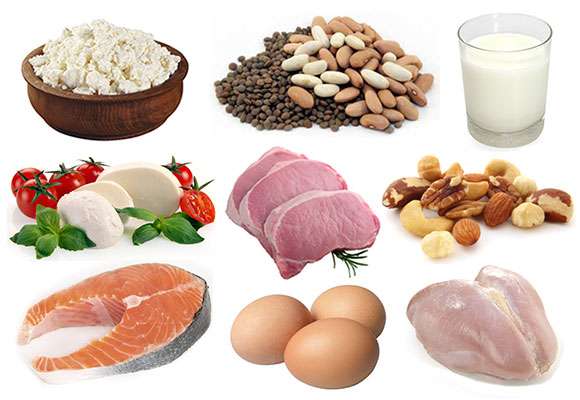 Source: http://bodybuilding-wizard.com
Source: http://bodybuilding-wizard.com
Let’s get one thing clear: proteins are awesome! A protein is a long chain made up of amino acids that functions as the building block of the body. Protein is used as a source of energy to repair tissue, to run your immune system, and a myriad of other things. What we’re trying to say here is that staying healthy is very much related to your intake of proteins.
There’s a bunch of media hype surrounding carbs and fats. Proteins, on the other hand, are mostly viewed as sports-related. But what if more attention was paid to protein in our diets?
Protein-Rich Food?
To compare protein with the other macronutrients, I found this helpful chart:
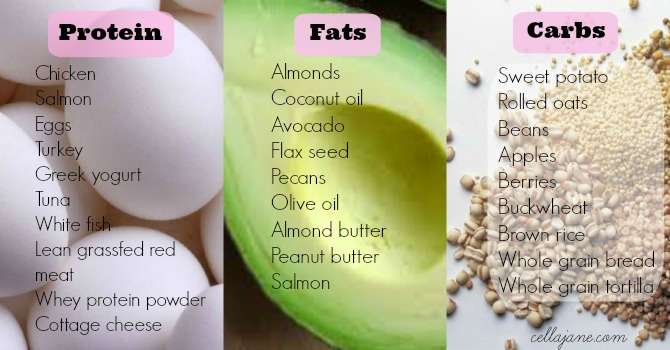 Source: http://2.bp.blogspot.com
Source: http://2.bp.blogspot.com
As you might have guessed from the pictures, high-protein foods are, for instance, meat, fish, eggs, and dairy products. The variety and amount of amino acids differ per food. Some foods contain essential amino-acids in a more or less complete sense and are therefore ranked higher in ranking systems for proteins. A combination of protein-rich foods works best for receiving all different amounts of amino acids.
Protein-rich foods can sometimes be expensive, are mostly not vegetarian and sometimes are a pain in the butt to make. Therefore we’ve invented Queal (quick + meal) to give you 1) easy, 2) tasty, and 3) complete meals that are packed with protein. Try out some of our shakes or complete meals in a bar!
Protein In Your Weight-loss Diet?
Now this is where it gets interesting. As noted before, the media is all over fats and carbs and their influence on losing weight and being healthy. Given less media attention, however, is the research on the effect of protein in a diet. An interesting article about energy balance noted that protein plays an important role in body weight regulation (1). It increases satiety, for example. A different article focused on energy expenditure found that proteins as 25-30% of calories boost metabolism, resulting in an increase in calories burned per day (2). And perhaps the most noteworthy research on the topic was done by the Rowett Research Institute. Researchers compared 3 groups of people overeating either carbs, fat, or protein. Subjects from the last group felt significantly more full and less hungry relative to the other groups (3).
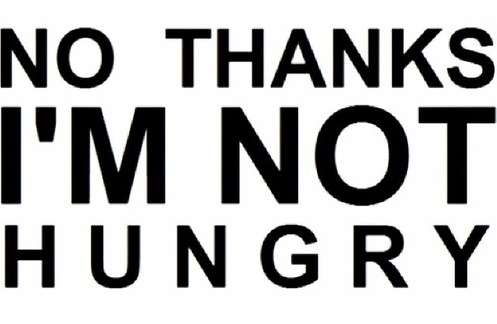
Source: http://40.media.tumblr.com
Of course, the sports-related character of protein is not just a story, but seeing protein just for muscle growth seems too limited. The power of protein extends much further.
The Future of Protein
Now let’s relate food to something very dear to most of us: sustainability. Increased awareness for sustainability is affecting the food industry more and more, and there are serious concerns about the future of animal sources of protein. The impact of livestock on the environment is an especially sensitive area.
The accusations are getting pretty serious here. Livestock is contributing more to the greenhouse gas emission than even cars. The antibiotics used for livestock are creating killer viruses. The production of food from livestock is costing more gallons of water than we can handle in the future. It’s clear the world is concerned with livestock because of its impact on the environment. Since meat is one of the main sources of protein for most of us, where will that leave us in the future?
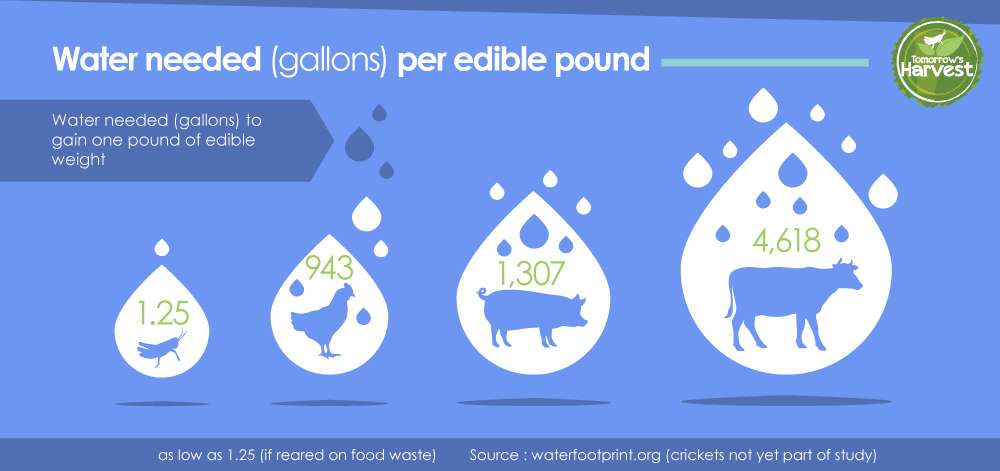 Source: http://static1.squarespace.com
Source: http://static1.squarespace.com
Some say we might end up consuming a different, protein-rich class of animal: insects. In many Asian cultures, this is already very common. The western world seems a bit more hesitant, but let’s be realistic. June Jo Lee, Vice President of Strategic Insights at The Hartman Group, stated: “Protein, sustainability and health concerns about antibiotics are all hot topics, and insect consumption addresses all of these issues. As a protein source, insects don’t have a lot of health baggage.”
As seen in the picture above, insects score a whole lot better on the water consumption scale. But are there other options besides insects to raise the amount of protein in our diets?
Whey Protein and Sustainability
As you might have guessed, Queal (our awesome complete meal in a shake) is high in protein. The protein from Queal, whey protein, is a by-product of the cheese-making process. When whey isn’t bought up by a company like Queal, it often gets dumped, or is otherwise sprayed onto arable land. Since whey contains a wide range of nutrients, this causes some problems. For instance, it increases the growth of aquatic plants and the biological oxygen demand of waterways. In simple words, it’s bad for the environment.
But it is exactly this nutritional value that makes whey so interesting. So why dump it and damage the environment? We use it as a vital part of our shakes. And we’re happy to add to global sustainability along the way!
So whether for dietary purposes or the future of food, definitely keep an eye out for Queal and its proteins!
Want to know more about Queal & protein? Onno wrote a blog on it a while ago: Protein Blog
References:
1: http://www.ncbi.nlm.nih.gov/pubmed/18448177
2: http://www.ncbi.nlm.nih.gov/pubmed/19640952
3: http://www.ncbi.nlm.nih.gov/pubmed/8862477
Join our list and receive an information ebook for free.
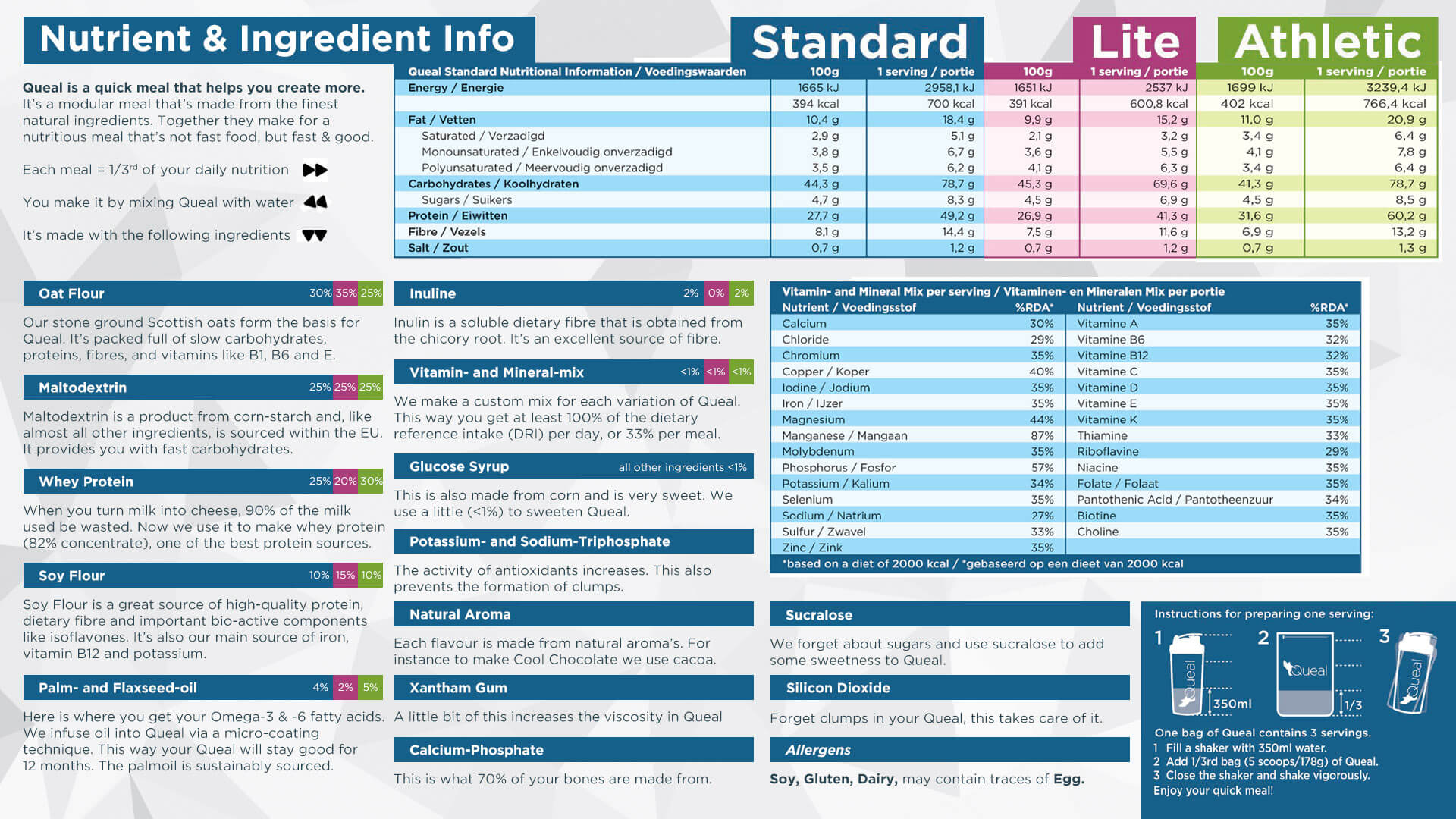



No Comments